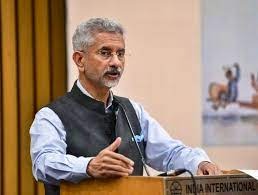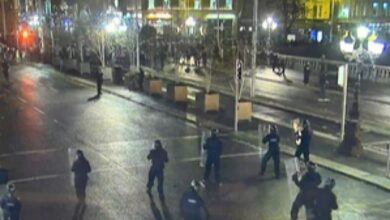The Iran-Israeli conflict puts the globe on edge
In retaliation for Israel’s attack on its consulate in Damascus on April 1, which claimed the lives of seven senior military officials, including Gen. Mohammad Reza Zahedi, who was in charge of Iran’s relations with Hezbollah in Lebanon, Iran is said to have fired roughly 350 missiles and drones at Israel on April 13. The Israeli and allied air defenses intercepted some 115–130 missiles that were aimed against Israel; other missiles failed in midair and missed their goal.

Iran had given the Americans 72 hours’ notice of the attack—though not the precise time—through informants in Switzerland, Iraq, Turkey, and Jordan. As a result, nothing was damaged apart from a seven-year-old Israeli child suffering major injuries. The Iranians intended to show Israel that they were capable of causing harm, hence, the strike was mostly symbolic.
The Israeli war cabinet supported reprisal, although there was disagreement regarding the timing and scope of the strike. Tel Aviv responded with great outrage. After Israel successfully blocked the missiles, US President Joe Biden informed Prime Minister Benjamin Netanyahu that the US would not participate in a counteroffensive against Iran. According to two top Israeli officials, Tel Aviv would not mount an independent campaign against Iran in the area.
The Israeli strike signaled a shift in tactics, because before it had targeted Iranian proxies or affiliates, usually in nations that supplied weapons or other forms of assistance to the “resistance” organizations (with the exception of Iranian nuclear experts). Iran was clearly feeling more confident, as seen by Tehran’s backing of Hamas during their daring raid on Israel in October of last year, Hezbollah’s persistent missile strikes in recent days, and the Houthi attacks on American and Israeli ships in the Red Sea.
By targeting the Iranian consulate in Damascus, which is a building that is protected by international agreements, Israel made it abundantly evident to Iran that its aggressive activities would not go unpunished and that Tel Aviv would stop at nothing to launch a frontal assault on Tehran.
Additionally, the latter had refrained from invading Israel out of concern for America’s “ironclad” backing for Tel Aviv and the damaging effects of a protracted confrontation on the country’s economy, which is already struggling with high inflation, slow economic development, a lack of essential goods as a result of sanctions, and unrest at home. Iran has no choice but to take this symbolic step in order to maintain its credibility with its citizens, overseas proxies, and other nations that back it.
The Arab governments’ responses to the Iranian onslaught were not uniform. According to reports, the US received information about Iran’s preparations to strike Israel via Saudi Arabia and the United Arab Emirates, which assisted in averting the huge attack. Jordan took an active role in firing drones that were being sent to Israel. Many Arab nations granted permission to intercept the Iranian drones and missiles using their airspace, and some even sent troops to help. Egypt demanded moderation from both parties.
The US authorized the deployment of aircraft and missile defense systems in the area as well as coordinated efforts between the governments of Israel and the Arab world as the Iranian strike approached. According to sources, the US operations center located in Qatar used its radars throughout the Gulf nations to detect the missiles and drones that Iran fired. Fighter aircraft, ships, and missile defense systems in the area received this information. The drones and missiles were shot down by American, Israeli, and sometimes British, French, and Jordanian jets as soon as they approached their target.
Leaders from the UK, Germany, France, and other nations have urged Israel not to react after the incident, in addition to President Biden. India has requested that both nations immediately defuse their tensions, practice self-control, desist from using violence, and resume diplomatic relations. “Influential countries (read: the US) must play a constructive role in maintaining regional peace and stability,” China said, expressing “deep concern.” “Political and diplomatic methods should be the exclusive means of resolving disagreements,” said Russia. On April 14, the UN Security Council convened an emergency meeting to consider this issue, but no further action was taken.
Without US help, Israel would find it very difficult to launch a frontal war against Iran. Any direct Israeli strike on Iran’s military or nuclear installations might lead to massive missile attacks on Tel Aviv by Tehran and its allies, wreaking havoc. Tehran is able to stop the flow of oil and other maritime and aviation commerce between Europe and Asia by launching huge drone assaults on US and NATO ships in the Persian Gulf.
Expanding the confrontation between Israel and Hamas is not in the Biden administration’s favor. The widespread destruction wrought by the Israeli onslaught in Gaza has infuriated a number of significant US organizations, whose support President Biden needs to win reelection in November.
Given that both Israel and Iran are ready to strike one another, their competition is becoming more savage. Iran is no longer interested in resuming its collaboration with the West and is instead turning to China and Russia as potential friends. It seeks to remake the regional order in accordance with its goals (anti-Americanism, anti-Israelism, and the victory of the Islamic world over the West), and it is unwilling to accept the new political and economic framework of cooperation (Abraham Accords) being championed by the US.
The two-state solution to the Palestinian problem has not been endorsed by the Netanyahu administration. There is currently no indication that Israel and Hamas will soon put an end to their confrontation. The conflict between Israel and Iran is escalating the unpredictability and volatility of the West Asian scenario, which might have catastrophic global ramifications.







